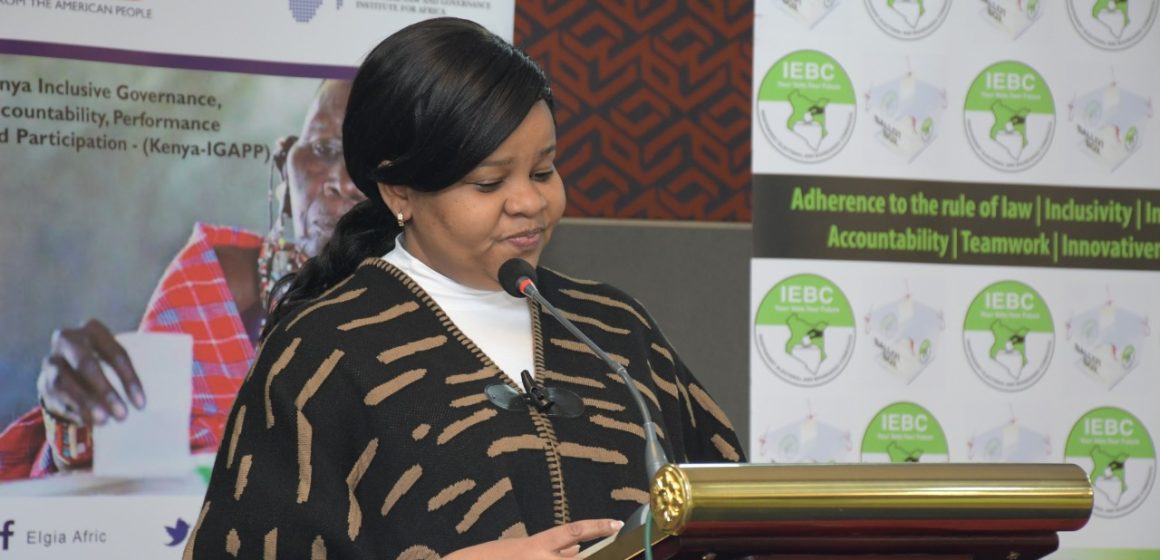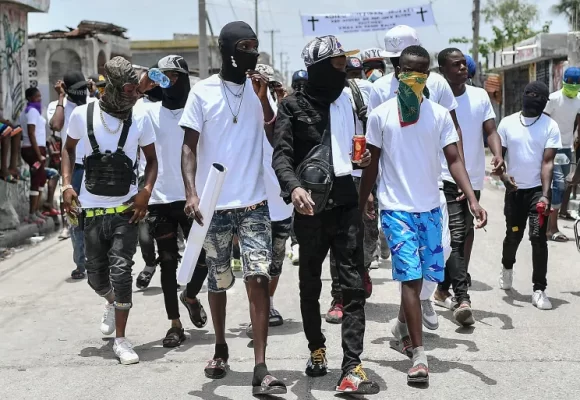|
LISTEN TO THIS THE AFRICANA VOICE ARTICLE NOW
Getting your Trinity Audio player ready...
|
Independent Electoral and Boundaries Commission (IEBC) announced Monday that it had produced voter information material in Braille for the blind.
The electoral body proclaimed the move is part of its effort to ensure persons with disabilities can fully participate in the upcoming General Elections, set for Aug 9.
The Commission further revealed that it made this move to ensure that the general elections would include special needs groups. It said that it seeks to use various strategies in a bid to strengthen the participation among people with disability.
“@IEBCKenya has produced voter information materials in Braille for the visually impaired (corrected tweet), is accrediting grassroots organization as voter education and partnered with organizations to transcribe voter education materials to accessible formats #GE2022,” IEBC said in its official Twitter handle.
Vice Chairperson Juliana Cherera says @IEBCKenya has established youth, women and disability inclusion committees who act as the link between the Commission and the special groups in information dissemination #GE2022 pic.twitter.com/08mnkjm6cm
— IEBC (@IEBCKenya) July 10, 2022
This is a milestone for Kenya since it is the first time it includes Persons With Disabilities (PWDs) in electoral processes. While speaking to journalists at KICC during a pre-national election conference with the media, IEBC Vice Chair Juliana Cherera said they had created youth, women, and disability inclusion committees that will link the special groups and the Commission in the transformation of information.
The Commission also obtained polling booths that give physically challenged persons enough space to ensure the secrecy of their votes and convenience when marking the ballot papers.
Making it easier for the PWD community to participate in elections is welcome news to The National Council for Persons with Disabilities and Integrated Development Facility, who aired their grievances, blaming the electoral body for excluding the special-need groups in the electoral processes.
Challenges facing Kenyans with a disability have been an ongoing matter that rarely plays a central role in political campaigns.
But this year, leading campaigns have prioritized the issue of assisting Kenyans living with disability in their manifestos.
Azimio Manifesto: Ensure public spaces and facilities such as toilets are accessible and provide targeted credit lines to the PWD community.
Kenya Kwanza Manifesto: Provide 100 percent NHIF coverage to persons with a disability
As part of its commitment, Azimio flagbearer Raila Odinga and his running mate Martha Karua have committed to providing services to persons living with a disability. Part of their plan is to ensure public spaces and facilities such as toilets are accessible and provide targeted credit lines to the PWD community.
In the Kenya Kwanza manifesto, persons with disability are also recognized as a special needs group that requires extra support. In the Manifesto, Deputy President William Ruto and his running mate Rigathi Gachagua pledge to provide 100 percent NHIF coverage to PWD, among other support.
The IEBC move is a step in the right direction and aligns well with standards in first-world nations where members of the PWD communities live independent lives.
Kenyan PWD advocates desire to see the country provide more accommodations to enable disabled Kenyans to contribute to society.
In the US, people with disability are provided with special placards allowing them to park their cars in reserved parking slots close to buildings. The buildings are also made accessible with ramps, large doors, and handles on stairs if necessary.
Kenya is yet to reach this level, but the IEBC has made a step in the right direction.






























LEAVE A COMMENT
You must be logged in to post a comment.